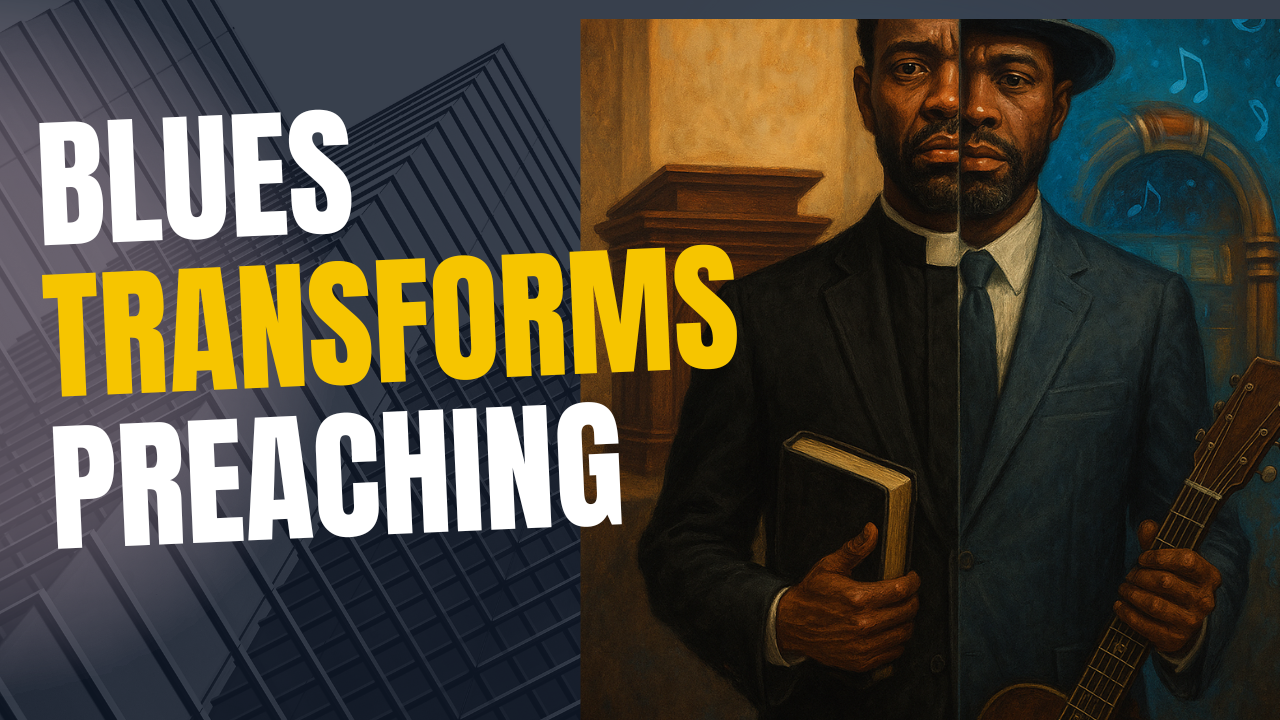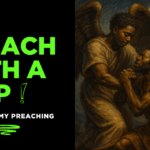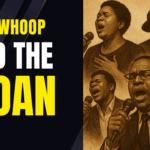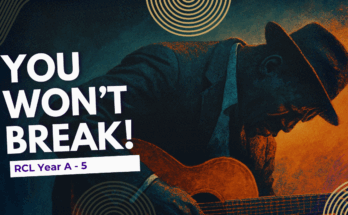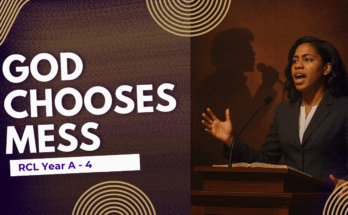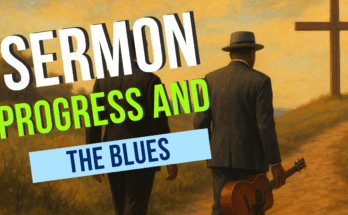As an Amazon Associate I earn from qualifying purchases.
Real preaching doesn’t promise you the new car.
It doesn’t guarantee a bigger house, a better job, or a fairy tale ending.
Because the Bible doesn’t either.
You can name it, claim it, spin around three times, and sow a seed —
and still go home to a house full of silence, sickness, or sorrow.
Why? Because real faith is not magic.
It’s not a divine transaction.
It’s not a vending machine where you press the right buttons and God drops a blessing.
The Bible says:
“All who live godly in Christ Jesus will suffer persecution.” (2 Timothy 3:12)
We don’t preach that enough.
Because it doesn’t sell.
Because it doesn’t fill the seats.
But the truth will still stand when the lights go out.
Paul begged for the thorn to be removed — and God said no.
(2 Corinthians 12:7–9)
Jacob was never the same after wrestling with God —
he walked with a limp for the rest of his life.
(Genesis 32:24–31)
And Jesus himself, the Word made flesh,
cried out from the cross:
“My God, my God, why have You forsaken me?” (Matthew 27:46)
This is not the gospel of upgrades.
This is the gospel of endurance.
Of walking with God in the pain, not just out of it.
The blues reminds us:
Not everyone gets the miracle.
Not everyone gets the breakthrough.
Not everyone gets the blessing they begged for.
But somehow — we’re still here.
Still breathing.
Still praising.
Still pressing.
Still singing.
Three Things the Blues Does to Preaching
1. It Cuts Through Superficial Celebration
The blues refuses to shout over sorrow.
It doesn’t trade in plastic praise or emotional manipulation.
It’s not interested in noise for noise’s sake.
It teaches us that real celebration can’t be microwaved.
It must be earned. Grown. Felt.
Blues preaching holds space for the Saturday silence —
that place between crucifixion and resurrection.
It reminds us that sometimes you don’t feel like dancing… and that’s okay.
Sometimes the best praise is just not quitting.
2. It Grounds the Sermon in Reality
Blues preaching ain’t scared of the dark.
It knows how to sit with people in the shadow — without rushing them toward the light.
No fantasy faith. No performance religion.
Just raw, rugged, real-life preaching.
It deals with:
The sister who prays for healing but dies anyway.
The brother who tithes faithfully and still loses his job.
The child who grows up in church and still walks away from God.
Blues preaching doesn’t blame them.
It walks with them.
It says, “You’re not crazy. You’re not alone. God is still here — even now.”
3. It Makes Space for Emotion — Especially Pain
Church can be a hard place to cry.
We’ve been taught to “fix our face,” put on our praise, and keep it moving.
But the blues says:
Let the tears fall.
Let the lament rise.
Let the grief speak — because God can handle it.
Jesus wept.
(John 11:35)
Jeremiah wept.
(Lamentations 1:16)
David wept until he had no strength left.
(1 Samuel 30:4)
So why are we still afraid to weep in church?
Blues preaching knows that tears are not a weakness — they’re a witness.
A testimony that we still feel, we still care, and we’re still reaching for something holy in the middle of our hell.
The Holy Blues of God
The blues doesn’t just describe human pain —
it reflects the divine willingness to enter it.
The blues reminds us that God didn’t sidestep the suffering.
God put on flesh.
“The Word became flesh and made his dwelling among us.” (John 1:14)
God wept.
“Jesus wept.” (John 11:35)
God bled.
“This is my blood of the covenant, poured out for many.” (Mark 14:24)
“Without the shedding of blood, there is no forgiveness.” (Hebrews 9:22)
God was betrayed.
“Judas, are you betraying the Son of Man with a kiss?” (Luke 22:48)
God cried out in agony.
“My soul is overwhelmed with sorrow to the point of death.” (Mark 14:34)
“My God, my God, why have You forsaken me?” (Matthew 27:46)
So no — Christianity isn’t about skipping the blues.
It’s about walking through the blues with the God who knows how it feels.
God sits with us in the mess.
In the silence.
In the scream.
In the midnight hour when nothing makes sense and nobody is picking up the phone.
“Even if I make my bed in hell, You are there.” (Psalm 139:8)
The Blues Is Also Social
The blues doesn’t just speak to individual heartbreak —
it speaks to communal suffering and structural injustice.
You can’t preach a blues gospel and ignore the systems that crush the people.
Blues preaching doesn’t say:
“Everything happens for a reason.”
It says:
“Some things happen because of racism, greed, and sin.”
It remembers:
The landlord raising rent in a neighborhood he never visits.
The corporate board that chooses profit over people.
The food deserts, the underfunded schools, the polluted water.
The blues understands what the prophets already knew:
“Woe to those who make unjust laws… to deprive the poor of their rights and withhold justice from the oppressed.”
(Isaiah 10:1–2)
“You trample on the poor and force him to give you grain… therefore, though you have built stone mansions, you will not live in them.”
(Amos 5:11)
“The wages you failed to pay the workers who mowed your fields are crying out against you.”
(James 5:4)
This ain’t just about personal salvation —
it’s about public righteousness.
Blues preaching dares to say that some prayers are blocked not by lack of faith,
but by real resistance in the heavens and on the earth.
“The prince of the Persian kingdom resisted me twenty-one days.” (Daniel 10:13)
So What Is Blues Preaching?
Blues preaching doesn’t flinch.
It doesn’t fake.
It doesn’t flee.
It steps into the pulpit with a holy limp —
with tears still drying and hope still burning.
It tells the truth.
And then it sings anyway.
This is not prosperity preaching.
This is presence preaching.
This is blues preaching.
It doesn’t promise that God will fix everything.
It promises that God won’t leave you in anything.
It doesn’t offer escape.
It offers companionship —
and that just might be enough to keep you going one more day.
As the old song says:
“I want Jesus to walk with me, all along this tedious journey.”
And if He walks with me?
That’s enough.
Amazon and the Amazon logo are trademarks of Amazon.com, Inc, or its affiliates.

